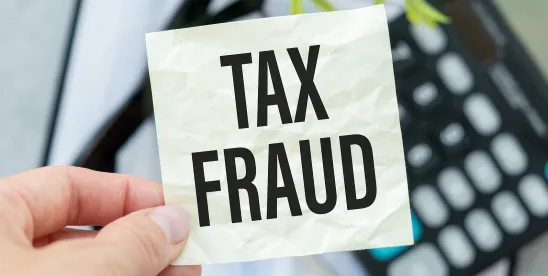MicroStrategy’s founder is alleged to have falsified tax documents for ten years. The settlement resolves the first whistleblower lawsuit filed under 2021 amendments to the DC False Claims Act.
Key Takeaways
- On June 3, the District of Columbia Office of the Attorney General announced the $40 million settlement with Michael Saylor
- It is the largest income tax recovery in D.C. history
- The settlement, which resolves a qui tam lawsuit filed under the DC False Claims Act, underscores the power of whistleblowers in combatting tax fraud
On June 3, the District of Columbia Office of the Attorney General (OAG) made a landmark announcement. The billionaire founder of MicroStrategy Incorporated, Michael Saylor, settled a tax fraud lawsuit for a staggering $40 million. This case, stemming from a qui tam whistleblower suit filed under the District’s False Claims Act, marks a significant milestone in the fight against tax fraud. The OAG declared this as the largest income tax recovery in D.C. history, underscoring the importance of this case.
The DC False Claims Act
This settlement is not just a victory for the District but also a testament to the power of whistleblowers. Under the 2021 extension of the D.C. False Claims Act, individuals have the power to file qui tam suits against large companies and suspected tax evaders. The 2021 amendments even offer monetary awards to those who report tax cheats. This settlement, the first settlement under these amendments, serves to put would-be tax cheats on notice.
As the District of Columbia expands its arsenal against tax fraud, other states should take note. The DC False Claims Act, now covering tax fraud, has become a powerful tool in the fight against financial misconduct. With the District joining the ranks of Delaware, Florida, Illinois, Indiana, Nevada, New York, and Rhode Island as states where false claims suits may be brought based on tax fraud claims, the fight against tax cheats looks promising.
The Case Against Saylor
In 2021, unnamed whistleblowers filed a lawsuit against Saylor, alleging that he had defrauded the District and failed to pay income taxes from 2014 to 2020. The OAG independently investigated these claims and filed a separate complaint against Saylor. The District’s lawsuit alleged that Saylor claimed to be a resident of Florida and Virginia to avoid paying over $25 million in income taxes. Another suit was filed against MicroStrategy, claiming it falsified records and statements that facilitated Saylor’s tax avoidance scheme.
The District’s allegations against Saylor paint a picture of a lavish lifestyle. Saylor is accused of unlawfully withholding tens of millions in tax revenue by claiming to live in a lower tax jurisdiction to avoid paying D.C. income taxes. The OAG’s investigation revealed that Saylor owned a 7,000-square-foot luxury penthouse overlooking the Potomac Waterfront and docked multiple yachts in the Washington Harbor. He purchased three luxury condominium units at 3030 K Street NW to combine into his current residence and a penthouse unit at the Eden Condominiums, 2360 Champlain St. NW. The Attorney General compiled several posts from Saylor’s Facebook, in which he boasted about the view from his D.C. residence.
Furthermore, the OAG found evidence that Saylor purchased a house in Miami Beach, obtained a Florida driver’s license, registered to vote in Florida, and falsely listed his residence on MicroStrategy W-2 forms. Attorney General Brian L. Schwalb stated, “Saylor openly bragged about his tax-evasion scheme, encouraging his friends to follow his example and contending that anyone who paid taxes to the District was stupid.”
The lawsuits allege that records from Saylor’s security detail provide Saylor’s physical location and travel from 2015 to 2020 and show that across six years, Saylor spent 449 days in Florida and 1,397 days in the District. Saylor allegedly directed MicroStrategy employees to aid his scheme to avoid paying District income taxes. The District claims that for the last ten years, MicroStrategy has falsely reported its income tax exemption on Saylor’s wages, claiming he was tax-exempt due to his residential status.
Saylor agreed to pay the District $40 million to resolve the allegations against him and MicroStrategy.
A copy of the settlement can be found here.



 />i
/>i

